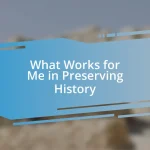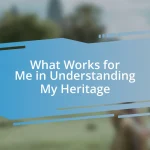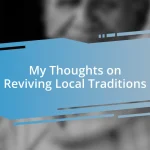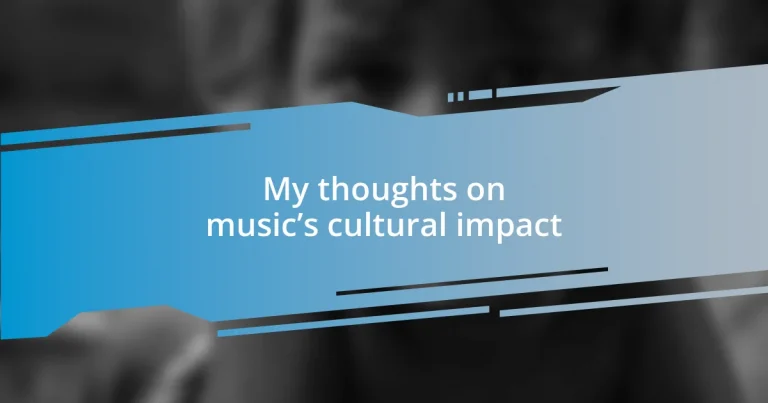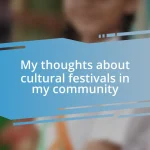Key takeaways:
- Music acts as a cultural connector, evoking nostalgia and uniting individuals across different backgrounds through shared experiences and emotions.
- The evolution of music reflects societal changes, with genres like blues, jazz, and rock serving as voices for marginalized communities and youth rebellion, while the digital age fosters global musical fusion.
- Music significantly influences emotional well-being, offering therapeutic benefits through listening and creation, and enhancing communal experiences at live concerts.
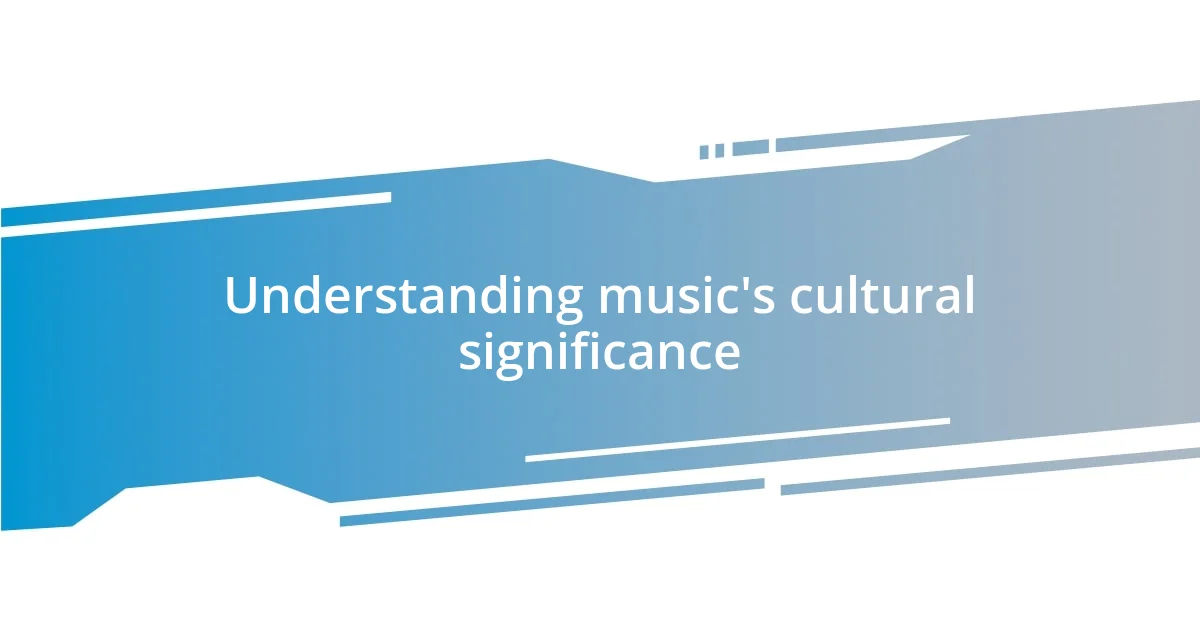
Understanding music’s cultural significance
Music resonates deeply within our cultural framework. When I think back to the songs that defined my adolescence, there’s a rush of nostalgia. Each melody I remember feels like a thread connecting me to momentous occasions and shared experiences, like singing along with friends at a summer festival. Isn’t it interesting how a single song can spark vivid memories of laughter, joy, and even heartache?
Consider how music often acts as a voice for the marginalized. I’ve seen this in movements, where powerful anthems rally people around shared struggles. For instance, during protests, certain songs seem to echo the sentiments of the crowd, uniting diverse individuals through a collective heartbeat. Isn’t it remarkable how a few chords strummed together can carry the weight of an entire movement?
The impact of music also transcends geographical and generational boundaries. I’ve experienced this firsthand when discovering a foreign artist whose work resonated with my personal experiences, despite the language barrier. It made me ponder: How does music manage to forge connections that words alone sometimes cannot? The beauty lies in music’s ability to speak emotions universally, allowing listeners to find common ground, even amidst differences.
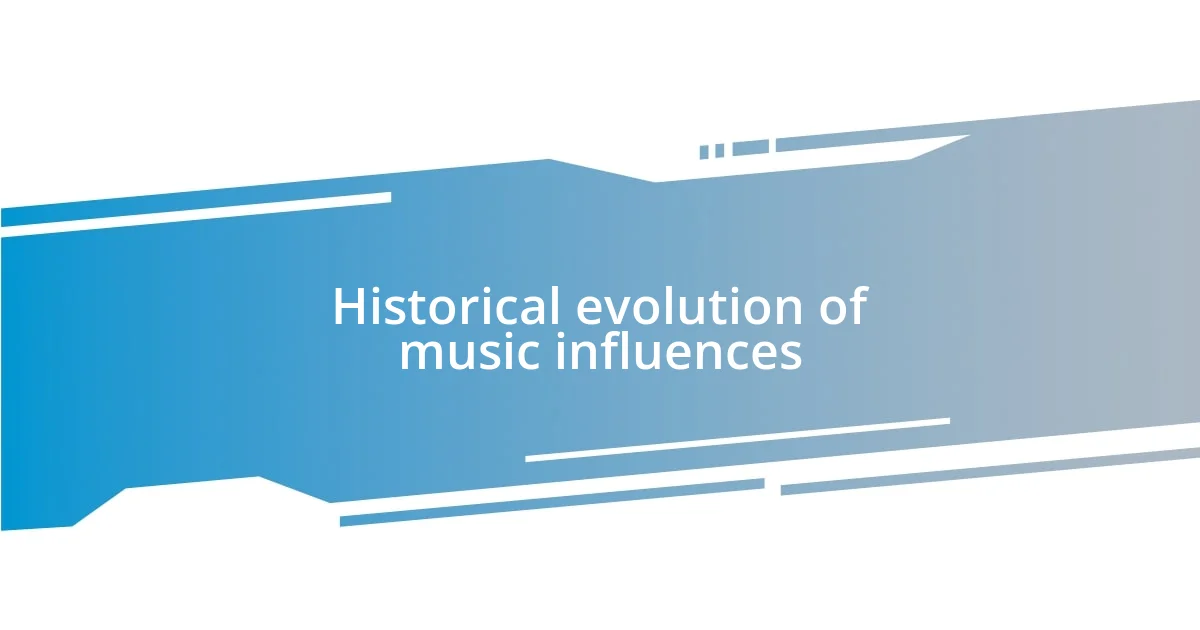
Historical evolution of music influences
Music has undergone a fascinating evolution, shaped by diverse influences over time. For instance, as I explore the timeline, I can’t help but notice how genres like blues and jazz emerged from African American communities, encapsulating the struggles and triumphs of their experience. This blend of cultural backgrounds not only gave rise to new musical styles but also fostered a sense of identity and unity among marginalized groups.
Moving into the 20th century, rock and roll became a revolutionary force, amplifying the voices of youth and rebellion. I remember listening to classic rock for the first time, feeling a rush of freedom in its boldness. It was more than just music; it was a cultural movement that challenged societal norms. The connection I felt to the artists was palpable, as if their lyrics were narrating my own feelings.
In contrast, the digital age has birthed an explosion of musical access, allowing influences to intertwine globally at an unprecedented pace. When I stumbled upon a fusion of traditional Indian music blended with contemporary pop on a streaming platform, it opened my eyes to how technology can create new meanings and contexts. Have you ever experienced a moment where a song transcended its original culture, making you feel connected to a world far beyond your own? That’s the magic of music—it adapts and evolves, continuing to reflect and shape our shared cultural landscape.
| Era | Influence |
|---|---|
| 20th Century | Rock and Roll emerged, challenging societal norms and expressing youth rebellion. |
| 21st Century | The digital age fosters global musical fusion, creating innovative blends of genres. |
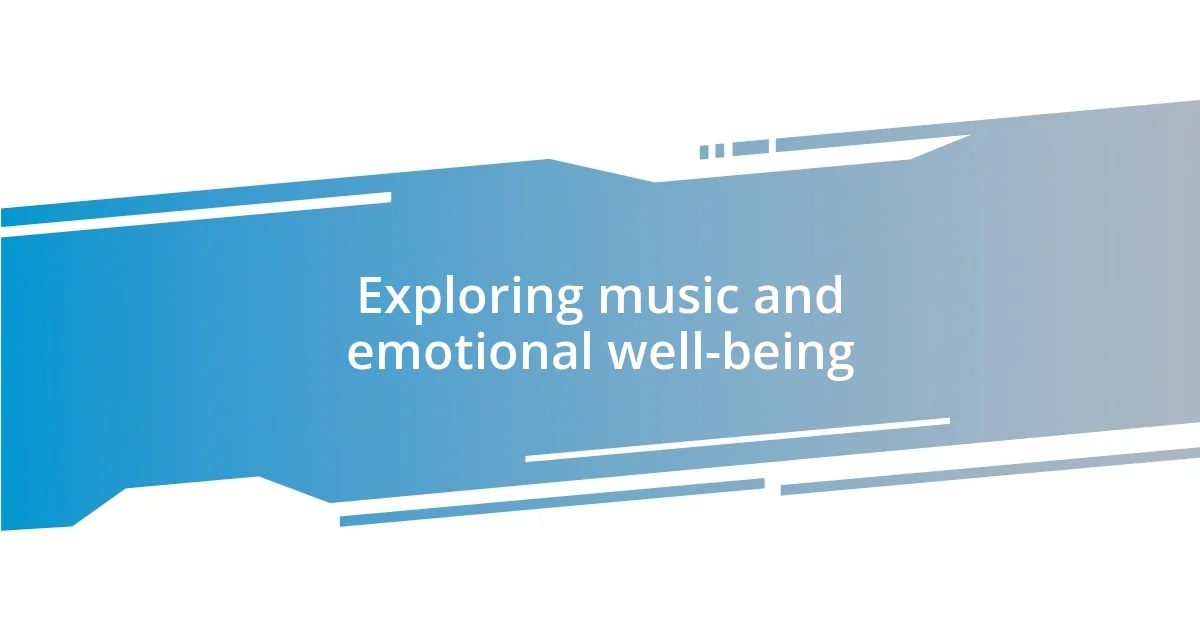
Exploring music and emotional well-being
Music has an incredible ability to influence our emotional well-being. I remember a time when I felt overwhelmed with stress, and I turned to my favorite playlist. Each song seemed to wrap around me like a warm blanket, easing my tension and bringing back feelings of hope and joy. Have you ever noticed how certain melodies can shift your mood almost instantly? It’s like music has a direct line to our emotions, making it an invaluable tool for self-care.
There’s something profoundly therapeutic about creating music, too. I once learned to play the guitar during a challenging phase in my life. The process became a sanctuary; each strum allowed me to express feelings I couldn’t articulate verbally. The more I played, the more I realized that music isn’t just for listening—it’s a way to process emotions and heal from trauma. Isn’t that quite a powerful realization?
Additionally, I often find that communal music experiences can enhance emotional well-being. Attending live concerts has a palpable energy that connects strangers through shared vibes. I recall standing amidst a crowd, singing in unison, feeling a sense of belonging and elation. It made me ponder: How does this collective experience uplift our spirits? I believe it stems from the understanding that we’re all in this together, united by our shared love for music and the emotions it evokes.
